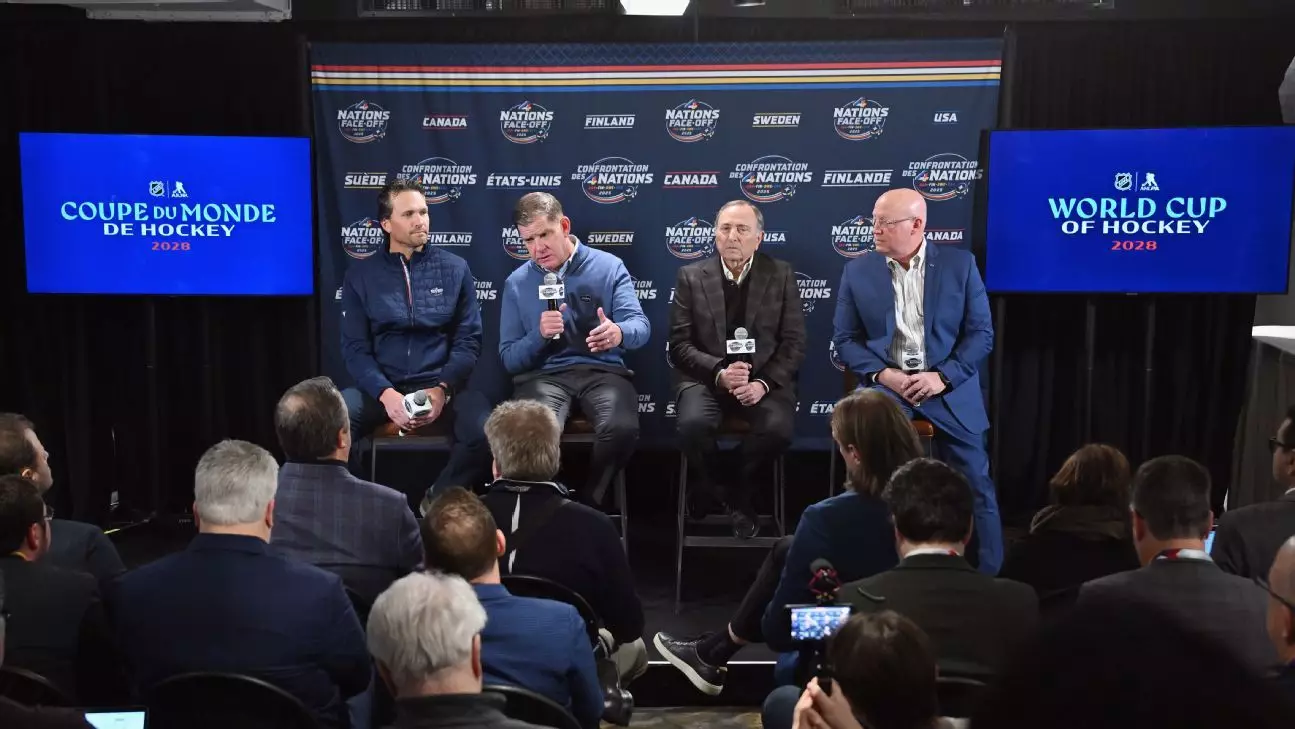The world of professional hockey is poised for a thrilling revival with the announcement from NHL commissioner Gary Bettman and NHLPA executive director Marty Walsh regarding the return of the World Cup of Hockey in February 2028. This decision not only signals a return to regular international competition but also addresses the long-held desires of top NHL players to showcase their talents on the world stage. This article delves into the implications of this announcement, exploring the landscape of international hockey, the significance of NHL players participating in global tournaments, and the challenges that lie ahead.
The announcement marks a significant shift in the landscape of international hockey, reinstating a regular cadence of best-on-best competition. Bettman revealed that, in addition to the World Cup, the NHL remains committed to sending players to the 2026 Winter Olympics in Milan. This dual commitment lays down a foundation for top-quality hockey every two years, ensuring that fans are treated to an unparalleled display of talent. The recent 4 Nations Face-Off, featuring the U.S., Canada, Finland, and Sweden, was described as a “sampler” of the excitement expected from future tournaments. With the backdrop of NHL players having been absent from the Olympic Games since 2014 and the World Cup since 2016, the anticipation surrounding these competitions is palpable.
The return of such events is particularly significant for stars like Connor McDavid and Auston Matthews, who have passionately advocated for the opportunity to represent their countries in their prime. Such moments are pivotal not only for the athletes but also for fans longing to witness world-class performances on an international level. Bettman’s enthusiasm for the tournaments underscores the belief that these competitions will be nothing short of sensational, establishing a new rhythm for hockey fans worldwide.
As preparations begin, Bettman announced that the NHL would soon start accepting bids for host cities for the World Cup of Hockey in 2028. This opens up exciting possibilities for European locations, reflecting the NHL’s commitment to expanding its global footprint. The format of the tournament remains indeterminate, although an expectation for at least eight teams has been set. Notably, unlike the previous World Cup in 2016, this iteration will not involve hybrid teams such as Team Europe or the U-23 North America team. Each team will represent a single country, emphasizing national pride and the deeply rooted traditions of international hockey.
This decision aligns with a desire to render the competition as authentic and representative as possible. It underscores the NHL’s commitment to fostering genuine rivalries and a sense of national identity, enhancing the viewership experience for fans across the globe.
The Russia Dilemma: A Potential Roadblock
However, one of the most pressing issues facing the World Cup of Hockey is the participation of Russian players. Since the invasion of Ukraine, Russia has faced bans from international competitions across all age levels. The NHL has upheld this policy, reflecting alignment with international governing bodies. The ongoing exclusion has intensified discussions regarding the future of Russian players in international events.
NHLPA’s Walsh expressed understanding of Russian players’ eagerness to return to elite competition. Despite the political complexities, many involved believe that these athletes deserve the opportunity to shine once more on the world stage. As the situation stands, the inclusion of Russian teams hinges on significant shifts in the current geopolitical climate, which may take time to resolve.
In addition to the World Cup announcement, the dialogue between the NHL and NHLPA hints at improved relations and a collaborative approach for future endeavors. Upcoming negotiations for a new collective bargaining agreement (CBA) signal a pivotal moment in this partnership. Bettman retains optimism regarding reaching new agreements, which can facilitate more international events in the future.
Hockey’s governing bodies must work collectively to navigate the political landscape and technicalities involved in organizing such prestigious events. Both Bettman and Walsh have emphasized that crafting the future of international competition requires careful collaboration, highlighting a shared vision for advancing the sport globally.
The announcement of the World Cup of Hockey’s return is a milestone that indicates a bright future for international competition in the sport. As NHL stars prepare to return to national jerseys, fans can look forward to an era marked by passion, anticipation, and thrilling displays of skill. While challenges such as geopolitical issues and tournament preparations remain, the collaborative spirit between the NHL and NHLPA has set a positive tone for the years ahead. As the world gears up for these exciting tournaments, the return of hockey on the global stage promises to be both exhilarating and unifying for fans and players alike.


Leave a Reply